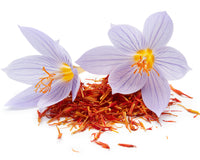Supermini foods. Little but powerful. Crops at their very early stages of development are seeds. They provide our bodies with a plethora of advantages when we consume them since they contain all the nutrients necessary for establishing a robust and sturdy plant.
True superfoods like sesame seeds, pumpkin seeds, sunflower seeds, watermelon seeds, seaand flax seeds are small, adaptable, and tasty packages of heart-healthy lipids, high-quality protein, and critical vitamins and minerals. Don't bother taking multivitamins; seeds include many of the same nutrients, fibre, and plant compounds.
As plant meals, seeds give our bodies nutrient-rich energy while also having less of an impact on the environment. With the help of seeds, everyone may choose to eat healthily.
A rich source of plant-based protein, seeds have a similar nutritional profile as nuts. Schools have become aware of nut allergies, and goods made from seeds offer a different snack choice for many students.
However, they are not only for those who have food allergies. As a portable and gut-friendly source of fuel for athletes, seeds are a fantastic source of protein and healthy fats for vegans, low-FODMAP diets, and omnivores alike. They also support optimal immunological, hormonal, and cardiovascular health in everybody.
They are definitely deserving of a spot in any pantry and may be readily incorporated into enjoyable and stimulating meals and snacks for you and your family.
Types of Seeds
There are a wide variety of seeds available to humans. Here we will take a look at the most common seeds used in everyday diets.
Sunflower Seeds
The tall, sun-worshipping sunflower has shelled kernels that are brimming with vitamin E.
The strength and integrity of cellular membranes are maintained by this vitamin, which acts as an antioxidant in our bodies. For this reason, it is frequently attributed to giving individuals beautiful skin and thick, lustrous hair.
Given that most Americans, according to current studies, do not consume enough vitamin E in their diets, just two tablespoons of sunflower seeds offer over half of the daily recommended dose for vitamin E.
The oil-rich sunflower seed provides the ideal packaging for our bodies to employ this crucial antioxidant to its best potential since the body cannot absorb Vitamin E without fat.
Thiamin and Vitamin B-6, which are both necessary for a healthy metabolism, are also abundant in sunflower seeds.
This implies that they assist in ensuring that your body obtains the most amount of energy from the meals you consume, which is crucial for managing a demanding, active schedule on a daily basis.
A significant source of magnesium, manganese, phosphorus, copper, and selenium is sunflower seeds. Magnesium, which is found in sunflower seeds together with Vitamin B-6, may aid to lessen PMS symptoms.
By preventing the symptoms of anxiety, maintaining enough magnesium levels in our meals may also help keep us calm, cool, and collected in addition to maintaining healthy bones, normal muscular contraction, and low blood pressure.
Pumpkin Seeds
The orange-fleshed pumpkin's green pepitas, which are the seed kernels, are rich in vitamin K, iron, magnesium, phosphorus, and manganese.
Pumpkin seeds stand out for offering a significant amount of iron, while also offering many of the same advantages as other seeds owing to their mineral composition.
Pumpkin seeds serve as a substitute supply of iron for those who are vegetarians or vegans who do not consume animal products. The vitamin K in pumpkin seeds aids in the promotion of ideal bone strength and healthy blood coagulation, much like that of dark leafy greens.
All nine of the essential amino acids, as well as a substantial amount of heart-healthy, inflammation-fighting unsaturated fats, are present in pepitas, making them a complete protein.
Watermelon Seeds
Watermelon seeds have earned a reputation as a superfood, and for good reason.
They are rich in magnesium and zinc and have more protein per serving than almonds and peanuts. Blood pressure and blood sugar levels are both controlled by magnesium. They are also an excellent source of folate, niacin, and iron.
The B vitamins niacin and folate help to support a healthy neurological system, digestive system, and skin. Last but not least, watermelon seeds include good lipids that have been demonstrated to lower inflammation and raise blood cholesterol levels.
Flax Seeds
One of the best sources of plant-based omega-3 fatty acids is flax seeds, which offer an unmatched amount of gut-strengthening fibre and a heart-healthy combination of lipids.
These nutrients are trapped in the indigestible flax seed shell and cannot be absorbed by our systems until the flax seed is broken down.
A special class of plant chemical called lignans is found in the fibres of flax, and new studies suggest that lignans may help prevent certain malignancies and effectively lower blood levels of harmful LDL cholesterol. When the seeds are crushed, lignan fibres are not lost but instead are much more effectively absorbed by our bodies.
Omega-3 fatty acids, which are found in very high concentrations in flax seeds, assist to lower general inflammation, which has been associated with asthma, heart disease, Alzheimer's disease, and many other chronic disorders.
Omega-3 is present in flax seeds in a proportion to omega-6 which is most beneficial to human health.
While omega-6 fatty acids are necessary, meaning they are required in human diets to exist, they are not difficult to acquire in the food supply and have been linked to increased inflammation when ingested in large numbers.
The omega-3 fatty acid known as alpha-linolenic acid is found in flax seeds (ALA). Our bodies must transform omega-3 ALA into the more active forms, DHA and EPA, in order to fully benefit from its ability to reduce inflammation.
However, for vegans and vegetarians who are unable to obtain DHA and EPA in their diets from marine creatures like fish and krill, ALA still represents a significant source.
7 health benefits of seeds
Regular consumption of seeds in your diet comes with a number of health benefits. Some of these benefits include:
1. Rich in magnesium and other minerals
Pepitas, or raw pumpkin seeds, are an excellent source of magnesium, manganese, iron, zinc, and copper.
Magnesium helps to promote mood and sleep while manganese has a role in collagen production and improves the health of the skin and bones. Copper and iron are used in the synthesis of energy, while iron aids in the delivery of oxygen to our cells.
Zinc promotes eyesight, healthy skin, and immunity. One serving of pumpkin seeds can provide 14 to 42% of the daily recommended amount for these crucial elements.
2. Helps in Weight Loss
Seeds are known to be high in alpha-linolenic acid (ALA), which is derived from the Omega-3 fatty acids found in them. These acids help to speed up the body's fat-burning metabolism.
Additionally, its high fibre content helps you feel fuller for longer periods and curbs your cravings. As a pre-meal snack, you can mix it into a bowl of yoghurt or add some to a fruit salad to curb your appetite.
3. May lower your risk of heart disease
Consuming seeds may lower your risk of heart disease since they are abundant in fibre and omega-3s.
Chia seeds and other sources of soluble fibre can help reduce blood levels of total and LDL (bad) cholesterol. In the long run, this can reduce your risk of getting heart disease.
Consuming ALA, an omega-3 fatty acid found in seeds, has also been associated with a lower risk of developing heart disease.
Chia seed supplements dramatically lowered blood pressure in persons with hypertension, or high blood pressure, which is a significant risk factor for heart disease, according to a few human studies.
4. High in antioxidants
These powerful seeds are loaded with antioxidants that protect cells, including carotenoids and vitamin E, in addition to minerals. Antioxidants not only lessen inflammation but also delay ageing and the onset of chronic illnesses.
5. May reduce blood sugar levels
Because seeds include fibre and other healthy substances, eating them may aid in controlling blood sugar levels.
High blood sugar levels may be experienced by diabetics. Heart disease is only one of the consequences that are linked to persistently elevated fasting blood sugar levels.
In particular, an earlier study from 2010 and 2013 indicates that healthy people who consume bread with chia seeds instead of bread without chia seeds experience reduced post-meal blood sugar spikes.
6. May improve sperm quality
According to research, both pumpkin seeds and pumpkin seed oil support the health of the prostate. Because low zinc levels have been linked to worse sperm quality, the zinc concentration of the seeds may help promote male fertility.
7. Easy to incorporate into your diet
It's really simple to include seeds in your diet. Since they have a relatively bland flavour, you may add them to almost anything.
They are a convenient addition to recipes because they don't require any extra kind of preparation.
They may be consumed raw, dipped in juice, or added to baked items like muffins, porridge, pudding, and smoothies. They can also be used as a garnish for rice, veggies, yoghurt, and cereal meals. Additionally, they function admirably as a binding agent in handmade fritters.
You may use them to thicken sauces and as an egg replacement since they can absorb water and fat. Additionally, they can be blended with water to create a gel.
It seems that people can tolerate the seeds. However, if you're not used to consuming a lot of fibre, eating too many seeds at once might cause you to have digestive side effects like bloating or diarrhoea.
0.7 ounces (20 grams, or roughly 1.5 teaspoons) of chia seeds twice daily is a typical dose suggestion. To avoid any negative effects on your digestion, don't forget to drink lots of water.
Simple methods to increase your daily intake of seeds
- Sprinkle a seed bar broken into small pieces over yoghurt, oats, or chia pudding.
- Seeds can be used as smoothie ingredients.
- By adding seeds, you may give your salad or soup some crunch.
- Replace the nuts in trail mix with seeds as a snack.
- Use ground pumpkin seeds in place of almond flour at a ratio of 1:1 by processing them in a food processor or coffee grinder.
- Use seeds as a crumbly topping for cakes and muffins or in place of nuts for a crunch in baked goods.
- Put ground seeds on your preferred protein as a rub.
- To replace eggs in baked dishes, use ground flax seeds.
Read also;



